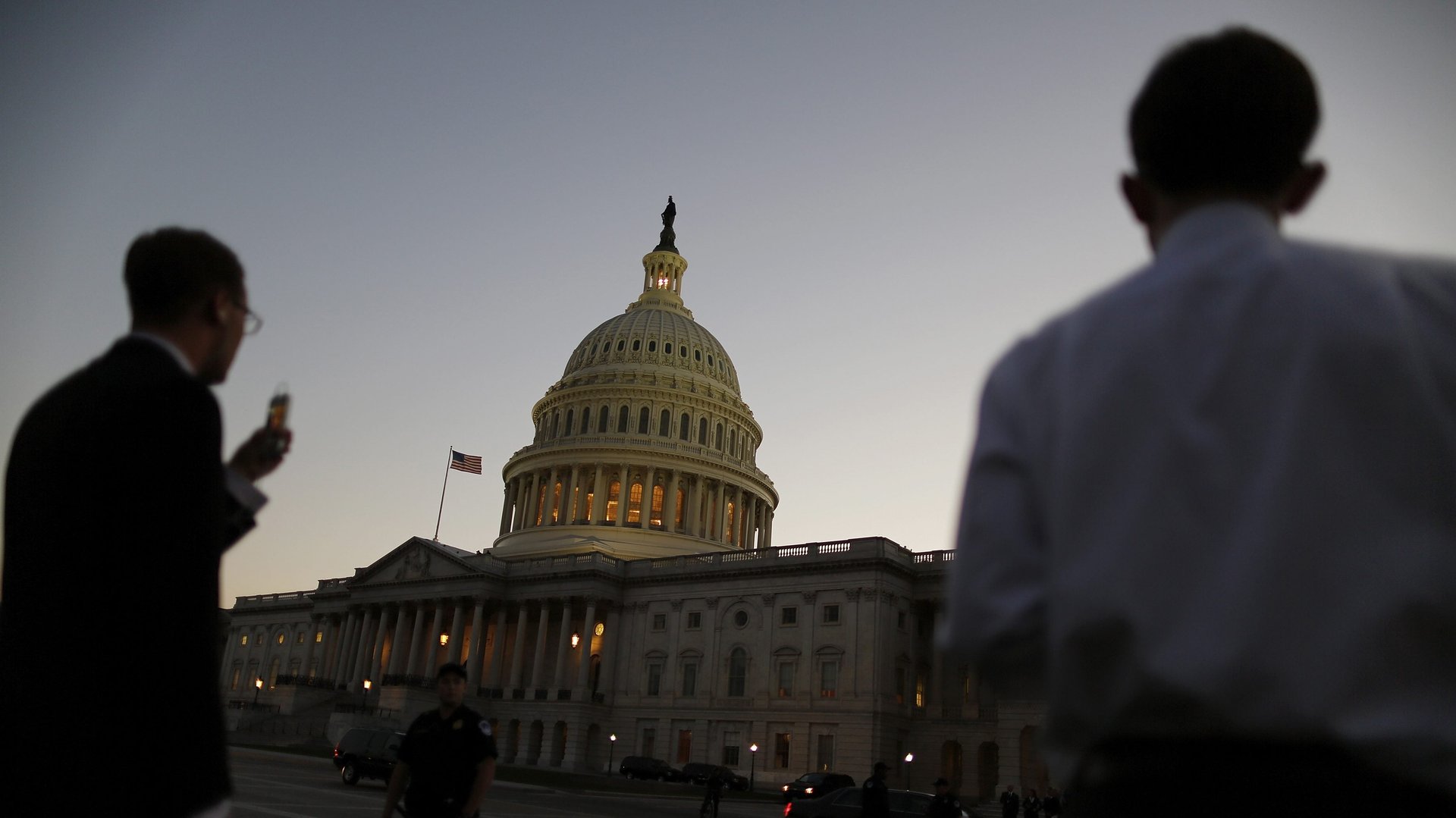The US senate just learned what bitcoiners mean by “hodl”
At a hearing today on cryptocurrency regulation, it was up to J. Christopher Giancarlo, head of the US Commodity Futures Trading Commission (CFTC), to explain the meaning of the bitcoiner rallying cry “hodl” to the members of the US Senate Banking Committee.


At a hearing today on cryptocurrency regulation, it was up to J. Christopher Giancarlo, head of the US Commodity Futures Trading Commission (CFTC), to explain the meaning of the bitcoiner rallying cry “hodl” to the members of the US Senate Banking Committee.
Senator Mike Rounds asked Giancarlo whether bitcoin is a commodity, a security, or a hybrid. The CFTC chairman said it displayed features of multiple asset classes. But when viewed as a store of value like gold, bitcoin behaves “very much like a commodity,” he said.
Giancarlo illustrated his point with a bit of bitcoin trading lexicon:”If you go on to the [bitcoin] Twitter universe, you will see the phrase ‘H-O-D-L,’ meaning hold on for dear life, meaning they buy it and hold it,” he said. He also revealed that his niece is a bitcoin hodl-er.
The hearing also included the head of the US Securities and Exchange Commission (SEC), Jay Clayton. The testimonies of the two regulators revealed a number of interesting signs about how cryptocurrencies will be regulated in the future. For example…
The SEC is going after ICOs
Clayton says every ICO he has seen has been a securities offering. The problem is, none of them has registered as offerings with the SEC. “ICOs that are securities offerings, we should regulate them like we regulate securities offerings, end of story,” he said.
The SEC is going after lawyers and accountants who enable illegal ICOs
“A note for professionals in these markets: Those who engage in semantic gymnastics and elaborate structuring exercises…are squarely in the cross-hairs of our enforcement division,” Clayton said.
But some ICOs, like those conducted with a “SAFT” agreement, are probably safe
This includes some of the biggest offerings of last year, like Filecoin, with marquee investors like Union Square Ventures. “I don’t think it necessarily follows that the SAFT is within the SEC’s sights,” said Preston Byrne, a structured-finance lawyer and a fellow at the Adam Smith Institute. Byrne has been a major critic of ICOs.
The SEC draws a distinction between “pure cryptocurrencies” and ICOs
It’s not entirely clear what that distinction might be. But Clayton said ICOs should be regulated like securities offerings, without mentioning the regulatory status of “pure cryptocurrencies.”
US Congress could give the SEC or CFTC more powers to oversee cryptocurrency exchanges
“I think we may need [additional legislative authority], I think we may need it,” Clayton said.
The FBI is assisting
The FBI has recently seconded agents to the CFTC to analyze transactions in the bitcoin futures and spot markets to detect signs of terrorist financing and evasion of sanctions by countries like North Korea, Giancarlo said. The oversight might explain the recent bitcoin price crash. Said Giancarlo, “Word is getting out that we will go after misconduct, I think you’re seeing it in the price, and it’s an important step.”
Don’t expect a bitcoin ETF any time soon
Clayton said the fact that exchange-traded funds (ETFs) are aimed at long-only retail investors, combined with issues concerning price discovery, custody, and volatility, mean that the regulator isn’t comfortable with green-lighting any applications yet.
The crypto industry believes the hearing went well. Both Giancarlo and Clayton talked up the potential of “distributed ledger technology,” although Giancarlo noted that there would be no blockchain without bitcoin. The technology has “enormous potential,” Giancarlo said.
Jerry Brito, the executive director of Coin Center, a blockchain-focused think tank in Washington DC, said the hearing showed that lawmakers want to fight crypto frauds and scams while letting Americans exercise a right to own cryptocurrencies. One prominent lawyer, who advises corporations on cryptocurrency matters, judged the SEC chief’s comments to be “neutral” while assessing the CFTC chief’s remarks as “positive.”
Crypto is turning out to be the rare industry where regulation is welcomed rather than opposed.